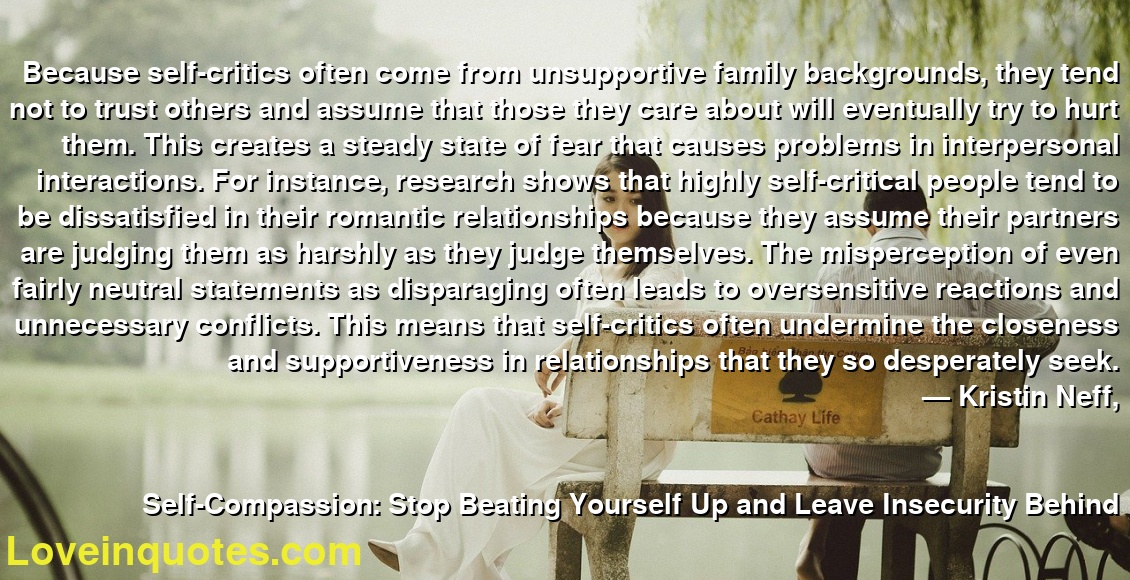
Because self-critics often come from unsupportive family backgrounds, they tend not to trust others and assume that those they care about will eventually try to hurt them. This creates a steady state of fear that causes problems in interpersonal interactions. For instance, research shows that highly self-critical people tend to be dissatisfied in their romantic relationships because they assume their partners are judging them as harshly as they judge themselves. The misperception of even fairly neutral statements as disparaging often leads to oversensitive reactions and unnecessary conflicts. This means that self-critics often undermine the closeness and supportiveness in relationships that they so desperately seek.
― Kristin Neff,
Self-Compassion: Stop Beating Yourself Up and Leave Insecurity Behind
Like Kristin Neff?
Buy Kristin Neff products
[easyazon_link keywords=”Kristin Neff” locale=”US” tag=”bestsellerlisting-20″] [/easyazon_link]
[/easyazon_link]
Do you Like Positive words and poetry?
Check out
| https://positivewordsdictionary.com/ | https://wordsthatrhymewith.com/ |



![Love doesn’t need consent or someone’s approval. It is as inevitable as life and death.
― Samreen Ahsan,
Once Upon A [Stolen] Time Love doesn’t need consent or someone’s approval. It is as inevitable as life and death.
― Samreen Ahsan,
Once Upon A [Stolen] Time](https://loveinquotes.com/wp-content/uploads/2021/05/love-doesnt-need-consent-or-someones-approval-it-is-as-inevitable-as-life-and-death-e28095-samreen-a.jpg)